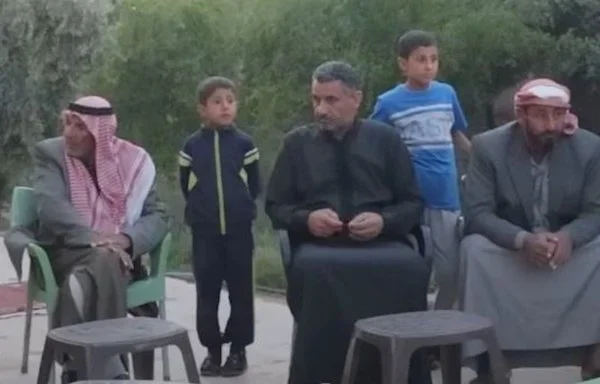Human Rights
Syrian border tribes search for members disappeared by Kataib Hizbullah
The fate of 150 Syrian tribesmen kidnapped by the Iran-backed militia in 2017 remains unknown.

By Samah Abdul Fattah |
Syrian tribes from the Albu Kamal region of Deir Ezzor province, which borders Iraq, have embarked on a quest to learn the fate of fellow tribesmen kidnapped by Iran-aligned Iraqi militia Kataib Hizbullah in 2017.
The families of the men kidnapped by Kataib Hizbullah have formed "a committee composed of local residents, dignitaries from the region, and media and political activists," Deir Ezzor Media activist Jamil al-Abed told Al-Fassel.
The committee has been tasked with following up with the Syrian authorities, and has been assured that the matter "will be a priority, given the good relations between the two countries at the present time."
Kataib Hizbullah elements entered Syrian territory in 2017 during the battles against the "Islamic State of Iraq and Syria" (ISIS), Albu Kamal political and media activist Nour al-Din al-Jamal told Al-Fassel.
"Upon taking control of the towns of al-Suwayiyah and al-Heri, they detained 200 young men between the ages of 18 and 40," al-Jamal said.
Around 20 of them were released after about two weeks, he said, while the rest were transferred to the Iraqi interior, specifically to the Jurf al-Sakhar area.
Jurf al-Sakhar is a fortified stronghold used by Iran-aligned Iraqi militias, particularly Kataib Hizbullah.
According to local residents, Kataib Hizbullah behaved "with sectarian motives and intent" upon entering Syrian territory, he said, noting that the militiamen considered "everyone" they encountered to be a member of ISIS.
They did not bother to conduct any investigation into the political affiliation of the tribesmen they abducted, he added, pointing out that the majority of the men the militia detained had in fact been pursued and pressured by ISIS.
Jurf al-Sakhar
The matter is "extremely sensitive due to the security situation in the Jurf al-Sakhar area, where it is believed the kidnapped were transferred," al-Abed said.
Iran-aligned militias have a presence in the area, he said, adding that to this day there are a number of secret prisons affiliated with the militias in the vicinity.
"If the kidnapped are still alive, it would constitute evidence of their forced disappearance by the militias," he said. "If their deaths are proven, it also would be disastrous for the militias."
The committee is planning to conduct on-the-ground activities and online campaigns, in addition to "communicating with Iraqi tribes that have social and familial ties with the Syrian tribes" to bring awareness to the situation, he said.